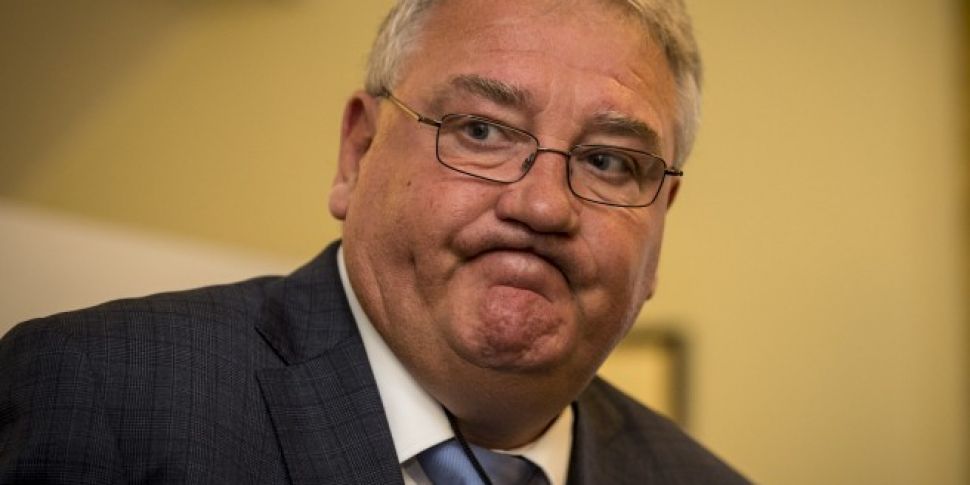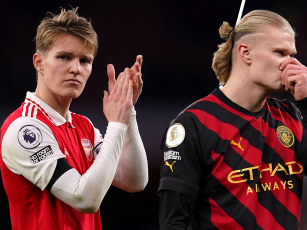Michael Calvin is a name that most of those within the footballing bubble will have heard of at some point. Author of The Nowhere Men, Living on a Volcano, as well as Family, Life, Death, and Football, has a long history of delving into the parts of football that are often overlooked.
Having already written about the world of top level managers and the scouts who unearth the talents who go on to star in the Premier League, his latest book, No Hunger in Paradise, deals with the current state of the underage and youth football academies, a world far darker and more pressure-filled than most would expect.
The book was recently turned into a documentary featured on BT Sport, and Michael joined Off The Ball's Joe Molloy and Kevin Kilbane to talk about how the cost of a possible career in the game comes at a heavy price for both the child and their family.
"In looking for or trying to understand the power of the dream, you're quickly confronted by the price of it".
"The odds are terrifying in many ways. Only 180 of the 1.5 million boys who play organised youth football in England at any one time will play a minute of the Premier League. That's a success rate of 0.012%".
"Even the survivors who get through probably need better guidance and perhaps more structured advice in a more holistic sense, because the game basically comes and it goes and it's relentless, and when people are spat out the other end I don't think they're as well prepared as they should be".
Calvin painted a picture of a pressure filled world, cut throat world where children are almost denied a childhood as their parents attempt to put them on the right track towards making a career from the game.
"There's a race to the bottom going on. It's really what they call the pre-academy stage, which is between the ages of six and nine. What you're find there is huge competition. If you take the North West as a good example, you've got boys who are five or six years old who are attending pre-academy sessions. It'll be United one day, City the next, Liverpool the next, and Everton the next.
"These kids are being picked up from school and they're eating in the backs of cars. They're children, and as a general rule I think what we're seeing now is almost a culture of premature professionalism. Where boys are sucked into the academy system at nine years old and they're almost told, subliminally in many ways, that this is your job and I think it becomes quite a joyless exercise".
When questioned on the weekly wages for academy players, Calvin was quick to point out that some clubs, such Tottenham, employ a more grounded system and pay players the minimum wage, though the likelihood of other sides adopting that approach seems thin, as they run the risk of losing their star 14 and 15-year-olds to richer sides.
"Those boys are very talented, and they go play international football with England. They might be sharing a room with a kid from Manchester City or Chelsea, who would be on £10,000 per week plus. Then they go back to their club and think 'well hang on a second, I'm playing in the same England side as this guy who's earning this amount of money, I'm only earning £380 a week'.
The problem of the rich clubs stockpiling talented youngsters poached from smaller sides has had a massive affect on the underage system at a number of clubs.
Brentford recently closed their academy and a number of teams are likely to do so in the near future. With the elite sides hoovering up the talent from the smaller clubs, those sides are no longer producing talent for their own first team, and the cost of running an academy(£7millon for a Category 1 academy, and £2.5million for a Category 2 academy) is too great for it to be sustained.
"There will be fewer academies going forward. If you look maybe two to three years down the line I would think that maybe 10-15 clubs will bin their academies".
The world of underage football can often be more lucrative than making it professionally at a side in the League One or Two, where the player would have a better chance of actually getting game time at senior level and making a career for themselves.
"The families are looking for the riches at the end of the rainbow. To give you one example, there was an England under-15 player who had been offered a two-year pro contract to kick in when he was 17, and that was for £45,000 a week".
"As that turned out, that family turned down that offer, but it was a heck of a thing to confront a 13 or 14-year-old boy with".
Almost every aspect of the senior level of the game has now been recreated at youth level, with agents coming on board before the players even hit their teenage years. These agents are even being sneaked into training sessions by parents, as the clubs have banned their attendance, but the attempts to spot and sign talent doesn't stop there.
"It's extraordinary to see the levels some of the agents will stoop to. There was a club in south London where an agent was offering cinema tickets to 10 and 12-year-olds as sort of getting to know you gestures. It's pretty awful to be honest".
Download the brand new OffTheBall App in the Play Store & App Store right now! We've got you covered!
Subscribe to OffTheBall's YouTube channel for more videos, like us on Facebook or follow us on Twitter for the latest sporting news and content.








